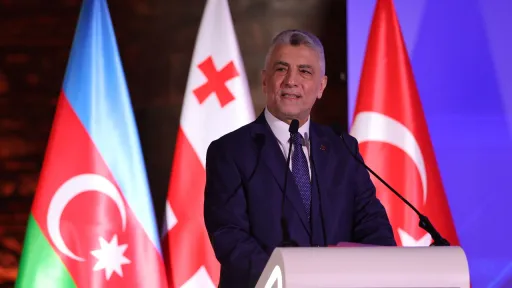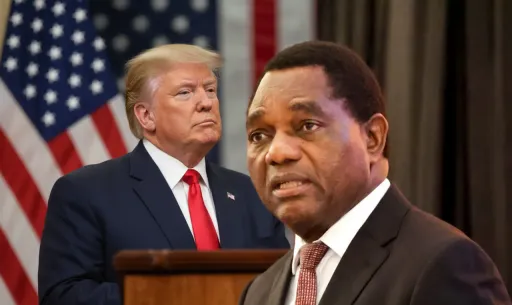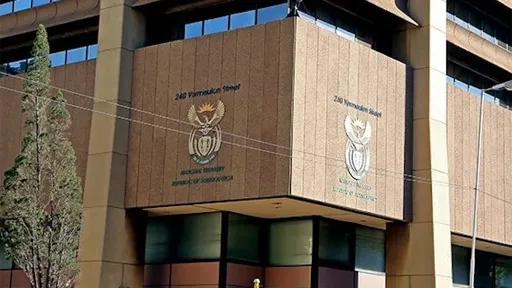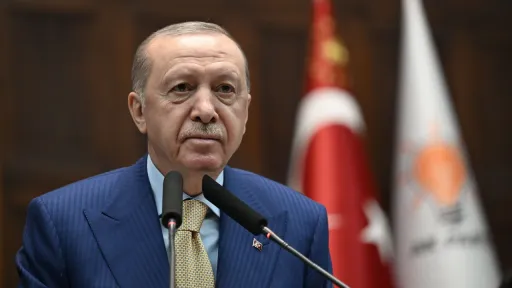Dr Allavo Makossa often uses how different foods taste as an analogy to illustrate his core principle: balance matters more than individual ingredients.
A tad too much salt ruins even the finest dish. Excessive spice limits who can enjoy it. The same holds true for nutrition; quality and quantity must work in harmony.
For decades, the Beninese nutrition specialist has applied this philosophy across Africa, helping communities and governments tackle hunger, malnutrition and poor dietary practices.
With a doctorate in nutrition and food technology and expertise in promoting local resources, Dr Makossa supports African agri-food companies in implementing international standards while preserving their cultural identity and authenticity.
World Food Day
This year's World Food Day theme – "Hand in hand for better food and a better future" –resonates in Dr Makossa's approach.
"This theme reflects the need for synergy between producers, processors, researchers, decision-makers and consumers," he tells TRT Afrika.
"For me, 'hand in hand' means building bridges between scientific knowledge and local know-how, public policies and community initiatives, and technological innovation and social sustainability. Together, we can create a safer, fairer and more environmentally friendly food future."
Beyond advocacy, Dr Makossa has translated his commitment into action through his NGO Food for All, which works to facilitate access to food for vulnerable and rural populations. His goal is to eradicate food insecurity and participate in community development.
Defining good nutrition
Dr Makossa's fundamental concept centres on culturally rooted dietary practices.
"Good nutrition is first and foremost a healthy, balanced diet that is intrinsic to where one is from," he tells TRT Afrika. "It must provide the body with essential nutrients – proteins, carbohydrates, lipids, vitamins and minerals – without excess or deficiency."

True to his mission, Dr Makossa's nutrition strategy entails promoting local products such as cassava, pineapple, maize, soya bean, fonio and indigenous vegetables.
"It is by consuming what we produce and producing what we consume that we control sustainable food sovereignty," he explains.
Food for All brings together people from various backgrounds and advocates mass agricultural programmes and agro-industry projects that lead to food self-sufficiency, with strong emphasis on local products.
Dr Makossa also raises awareness about age-appropriate dietary habits.
For children, he recommends milk, fortified local porridges, eggs, and fruits and vegetables rich in micronutrients to support growth.
Adults need energy balance – primarily foods rich in fibre, vegetable protein and fresh fruit –while limiting refined sugars.
Older people require foods that are easily digestible without compromising on nutritional density. Soups, tender legumes, ripe fruit, fish and adequate hydration comprise Dr Makosso's go-to nutritional profile for them.
"Each age group has its own needs, and the challenge is to adapt our local practices to these nutritional realities," he says.
Awareness campaign
To commemorate World Food Day, Dr Makosso's NGO has planned a series of civic and sporting activities.
One of the main events, dubbed a "race against hunger", will involve schoolchildren, older students and other participants on a symbolic circuit to raise awareness about the ways to combat hunger and malnutrition.
Experts, policy-makers and representatives of civil society will participate in discussions on food sovereignty and how local innovations can help achieve this goal.
The urgency to tackle the challenges head-on is clear.
According to a June 2024 report titled The State of Food Security and Nutrition in the World –published by five United Nations agencies – 733 million people faced hunger in 2023. This works out to one in 11 people worldwide, and one in every five in Africa.
In recent years, the Food and Agriculture Organisation (FAO) of the United Nations has repeatedly denounced the decline in funding for food programmes, even as the number of people dealing with famine has grown exponentially.
Dr Makossa believes endogenous and sustainable solutions hold the key, with agriculture, fishing and livestock farming as the main levers.
The nutrition specialist proposes a three-pronged approach entailing “inclusivity in agri-food industrialisation", economic empowerment of rural women, and universal access to nutrition.























